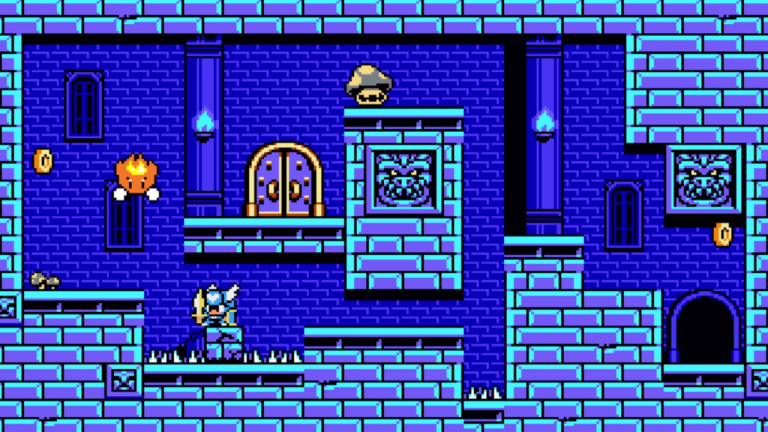If you’re gently confused as to why everyone was upset at an allegedly-sweet baby, then you’re certainly not alone.
As per a Kotaku report on the subject yesterday, a Steam group has picked up traction to the tune of around 70,000 members at the time of writing. It’s called ‘Sweet Baby Inc detected’, as if to warn discerning consumers of invasive DRM or something.
Instead of warning against potentially-sketchy software, though, these concerned gamers have instead perceive a rising tide of ideology that’s somehow taking over the industry by force. Kotaku’s senior editor spoke to a handful of members from the group’s discord, who were primarily concerned about “ideological worldviews that I believe have taken hold of the Western world, media, and gaming as a whole” and “race and identity group quotas”.
In other words, the kind of stuff that caused an entire fleet of gamers to construct their own anti-woke Sci-Fi convention, rally against power-saving console features as if they were a big statement on climate change, or start lengthy Twitter threads about how they accurately-rendered Aloy with the usual amount of hair a woman has on her face.
The situation grew in scale as some Sweet Baby employees, frustrated at the idea of a curated list specifically made to avoid games they had worked on, acknowledged the group on social media. While the tweet has been removed, one employee also discovered and shared the group curator’s Twitter account.
(Image credit: Raw Fury)
Regardless of your opinion on that, it should be noted that Steam’s guidelines for this sort of thing prohibit insults, harassment, and discrimination. “The creators and members of these groups are responsible for ensuring that they adhere to all of the guidelines outlined above.” It can be argued that the anti-Sweet Baby group is violating said guidelines.
Sweet Baby employees maintain that, overall, their job is to provide assistance to companies that already want to improve already-existing diverse elements. As per the company’s CEO Kim Belair: “But the perspective is never that we’re coming in and injecting diversity … For the most part, it’s the reverse. It’s that a company has created a character and they want to make that character more representative and more interesting.”
To the uninitiated observer who gets riled up over Starfield daring to let you they/them in space, Sweet Baby may very well represent everything terrible about video games in the modern era—but in case you aren’t like that, I feel obligated to lay out an explanation.
Consultation work is a complete non-event
(Image credit: Remedy Entertainment)
Sweet Baby is a “narrative development company”, according to its CEO Kim Belair, and described as a “consultation studio” on its website. Here’s a great breakdown of what exactly that entails from a narrative designer that’s actually worked with Sweet Baby before, and is currently working on Insomniac’s Wolverine.
“It starts with: [a] dev team has an idea. Maybe they already have an outline of their story and a core gameplay loop. Maybe they’ve got a whole script and a playable build. Either way, something is missing,” Mary Kenney writes. These problems could involve poor worldbuilding, an “underbaked character”, and so on. “the team knows something is wrong but not how to identify or fix it.”
However, as Kenney emphatically states, Sweet Baby has no actual say on what makes it into the final game. “If the dev team disagrees with them on something? The dev team doesn’t take the note. It really is that simple.”
Bafflingly, this isn’t the first time in recent days that game developers have had to dispel such rumours. Here’s Kyle Rowley, director of Alan Wake 2, having to set the record straight about Saga Anderson’s ethnicity.
(Image credit: @TimePirateNinja on Twitter/X.)
To rephrase the obvious: Sweet Baby is about as capable of ‘forcing’ a game developer to make grand, sweeping changes to its story and characters as a contracted artist, musician, or catering company staff worker for office birthdays is. It’s the prime business model of consulting companies to offer consultation, not orders.
In that sense, Sweet Baby’s work is literally a non-event. Not in the sense that its unimportant—I mean that its work is so normal that it should surprise no-one. Yes, Sweet Baby explicitly consults on issues including the accurate representation of marginalised groups. That is what it helps with.
But if that wasn’t important to the people making the games they work on, then Sweet Baby just… wouldn’t be hired. The idea that Sweet Baby is somehow doing ‘bad work’ doesn’t pan out either.
Sweet Baby isn’t ruining games, obviously
(Image credit: Santa Monica Studio)
A second, even more baffling strain of criticism around Sweet Baby is that it’s “ruining games” somehow. Most recently, Sweet Baby was hired to help consult on Suicide Squad, which hasn’t been doing great by Warner Bros. own admissions. If you’re wondering what character design and story elements have to do with an ill-advised live service game—yeah, me too. But let’s look at Sweet Baby’s portfolio.
Over the past few years, Sweet Baby has been called in to work on some genuinely solid games like God of War Ragnarök, Shadow Gambit: The Cursed Crew, Marvel’s Spider-Man 2, and Alan Wake 2—which got an 88 from us in our Alan Wake 2 review. In the interest of fairness, there are some less-than-solid titles there too, like Gotham Knights and Dungeons & Dragons: Dark Alliance.
Sweet Baby has consulted on games of varying quality because, obviously, it’s not actually responsible for a game being good. It’s barely even responsible for the quality of a game’s story. It’s the narrative designers on those respective titles who have final say, and you can receive the best critique in the world and not use it.
So why Sweet Baby?
Picking a fight, doesn’t matter who
(Image credit: Rocksteady Games)
Because it’s there. That might be the whole thing, folks.
If you’re against games with inclusive casts or what-have-you, it’s growing harder to tow that particular line. Such games have proven (not that they needed to) that they can be both good and bad, in the ways that any game can be.
It’s hard to say, for example, that non-heterosexual folks like myself are ‘ruining video games’ when Baldur’s Gate 3 is inherently supportive of queer players, and just so happens to be one of the best RPGs of the decade. Again, not that any of this needs disproving—but if you’ve got a culture war to wage, you need to up recruitment somehow.
It’s far easier to believe that some insidious outside influence is sneaking its cabalist silver tendrils into your favourite hobby, rather than admitting that most gamers don’t actually care. It’s a simple sell to invent a version of a company that’s somehow forcing people at the metaphorical gunpoint to turn up the diversity dial rather than just… being a service that is clearly useful to some developers, telling certain kinds of stories.












